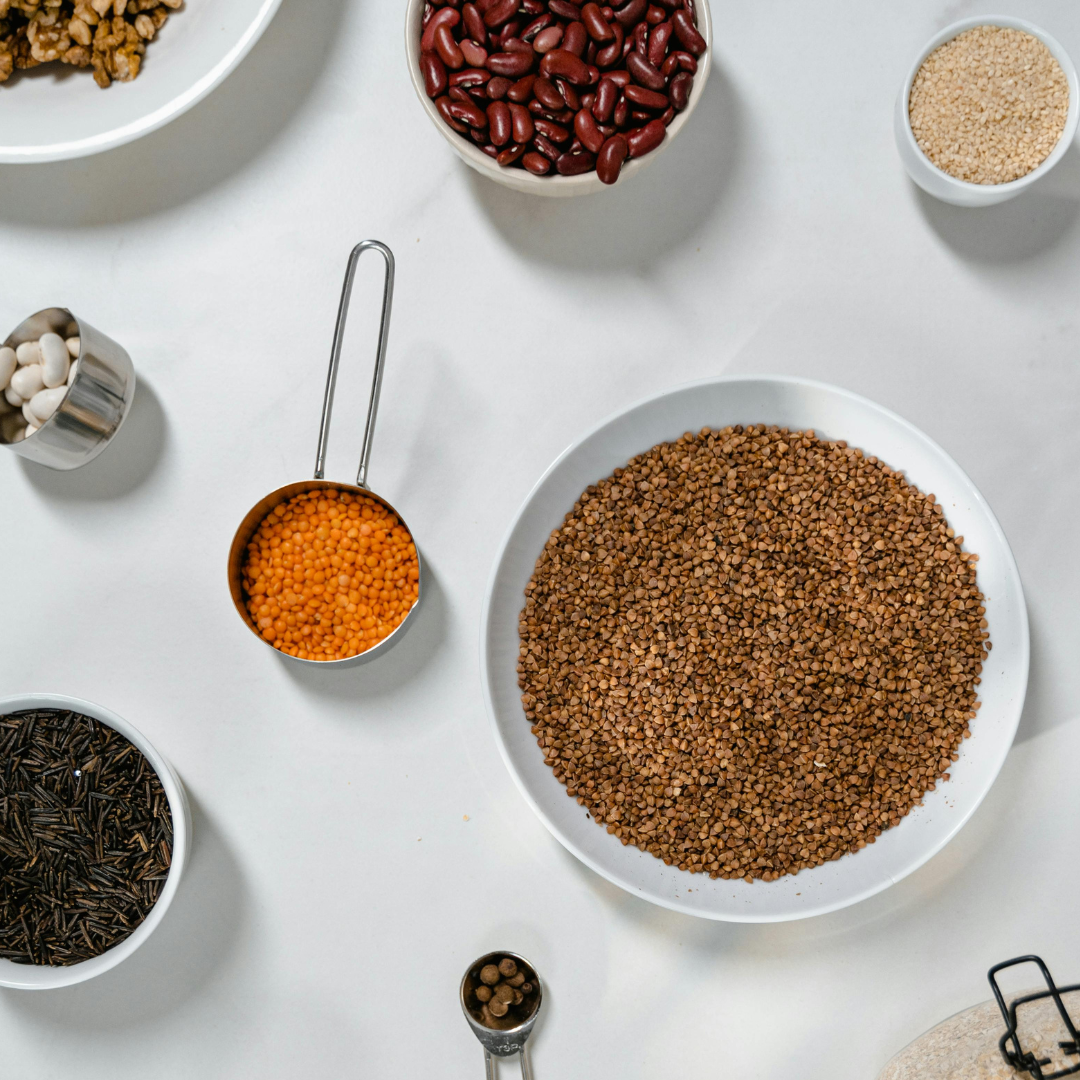Can Too Much Fibre Cause Constipation?

Fibre is a type of carbohydrate found in plant foods such as fruits, vegetables, whole grains, nuts, and seeds. Unlike other carbohydrates, fibre isn’t digested by the enzymes in your stomach or small intestine. Instead, it travels to the large intestine where it performs several important functions.
There are two main types of fibre: soluble and insoluble. Soluble fibre dissolves in water, forming a gel-like substance that slows digestion. Insoluble fibre adds bulk to stool and helps food pass more quickly through the digestive tract. Both types play crucial roles in maintaining gut health and supporting regular bowel movements.
How fibre helps prevent constipation
Constipation typically means infrequent or difficult bowel movements. One of the most common causes is insufficient dietary fibre. Fibre draws water into the stool, making it softer and easier to pass. It also adds bulk, which stimulates the muscles in the intestines to move stool along. Eating a fibre-rich diet has long been recommended by health professionals to ease and prevent constipation.
However, as with any good thing, there can be too much of it. While fibre is essential for digestive health, excessive intake without proper hydration or gradual increase can cause issues, including constipation.
Can too much fibre cause constipation?
Yes, too much fibre can sometimes lead to constipation, although this may seem counterintuitive. When fibre intake suddenly spikes, especially without drinking enough fluids, it can have the opposite effect and cause the stool to become hard and difficult to pass.
This happens because fibre absorbs water in the gut. Without adequate hydration, the fibre can lead to bulkier, drier stools that move more slowly through the digestive tract. Insoluble fibre, in particular, can contribute to this if consumed in very large amounts quickly, as it adds significant bulk.
Additionally, consuming too much fibre too fast can overwhelm your digestive system, leading to bloating, gas, and cramps. Your gut bacteria also need time to adjust to increased fibre, especially if you switch from a low-fibre diet.
Why hydration is key when eating fibre
Water and fibre work hand in hand. Fibre pulls water into the intestines, so drinking enough fluids is essential to keep stool soft and prevent constipation. Without proper hydration, fibre can actually make constipation worse.
Most adults are recommended to drink around 1.5 to 2 litres of water a day, but this can vary depending on activity levels, climate, and individual needs. If you are increasing your fibre intake, you should also increase your water consumption to help your body cope with the extra bulk.
How to increase fibre intake without risking constipation
- Increase fibre gradually. Sudden large increases can overwhelm your gut. Add fibre-rich foods to your diet slowly over several weeks.
- Drink plenty of water throughout the day. This will help fibre move smoothly through your digestive system.
- Balance soluble and insoluble fibre. Both are important, but a good mix can help maintain a healthy stool consistency.
- Include fermented foods and live cultures in your diet. These support your gut bacteria, helping your digestive system adapt to changes in fibre intake.
- Exercise regularly. Physical activity stimulates the muscles in your intestines, promoting regular bowel movements.
When to consider fibre supplements
Getting enough fibre through whole foods alone isn’t always easy. Busy schedules, limited time for meal prep, or dietary preferences can make it challenging to consistently include high-fibre foods in your day. In these cases, a fibre supplement can be a great option to support regular digestion.
If you choose to use a supplement, start with a small amount and increase it gradually. This gives your digestive system time to adjust and helps avoid discomfort. It’s also essential to drink plenty of water to support how the fibre moves through your gut.
If you’re unsure about when or how to use a supplement, speak to a healthcare professional - especially if digestive symptoms persist despite dietary changes.
Signs that fibre may be causing constipation
If you’ve recently increased your fibre intake and start experiencing symptoms like bloating, hard stools, stomach cramps, or less frequent bowel movements, fibre could be the culprit. These symptoms suggest that your gut might need more time to adjust or that you need to tweak your fibre and fluid intake.
On the other hand, persistent constipation might indicate other underlying issues, food intolerances, or other digestive conditions. If symptoms continue, it’s wise to consult a healthcare professional.
Simple ways to increase dietary fibre
Increasing your fibre intake doesn’t have to mean a complete diet overhaul or eating foods you don’t enjoy. Small, practical changes to your everyday meals can make a big difference. Here are some easy, actionable tips to help you boost fibre naturally and comfortably, without risking constipation.
- Add a handful of chickpeas or lentils to your favourite curry or stew to boost fibre and protein.
- Top your morning porridge with a tablespoon of ground flaxseeds or chia seeds for extra soluble fibre.
- Swap white rice for brown rice or quinoa in meals to increase your intake of wholegrain fibre.
- Include a side of steamed broccoli or roasted vegetables with your dinner for an easy fibre boost.
- Snack on a small handful of nuts and seeds instead of processed snacks to add fibre and healthy fats.
- Add sliced apple or pear to a salad or yoghurt for extra natural fibre and sweetness.
- Replace regular bread with wholemeal or seeded varieties for added fibre with your sandwiches or toast.
- Stir in cooked beans or peas to soups or pasta sauces for a fibre-rich and filling meal.
Final thoughts
Fibre is essential for good gut health and regular bowel movements, but more isn’t always better. Too much fibre, especially when introduced rapidly or without sufficient water, can cause constipation and other digestive issues.
A balanced, gradual approach to increasing fibre, combined with proper hydration, regular exercise, and supportive gut health products, offers the best chance for a comfortable, well-functioning digestive system.
If you’re keen to optimise your gut health with fibre but want to avoid constipation, start slow, drink plenty of fluids, and consider adding quality supplements that support your gut microbiome. By listening to your body and adjusting your diet carefully, you can enjoy all the benefits of fibre without the downsides.
Trusted Sources
- McRae MP. Effectiveness of fiber supplementation for constipation, weight loss, and supporting gastrointestinal function: a narrative review of meta-analyses. J Clin Med. 2020;9(11):3353.
- van der Schoot A, Drysdale C, Whelan K, Dimidi E. The effect of fiber supplementation on chronic constipation in adults: an updated systematic review and meta-analysis of randomized controlled trials. Am J Clin Nutr. 2022;116(5):1229–1244.
- Anti M, Pignataro G, Armuzzi A, Valenti A, Iascone E, Marmo R, Lamazza A, Pretaroli AR, Pace V, Leo P, Castelli A, Gasbarrini G. Water supplementation enhances the effect of high-fiber diet on stool frequency and laxative consumption in adult patients with functional constipation. Hepatogastroenterology. 1998;45(21):727–732.
- Yurtdaş G, Acar-Tek N, Akbulut G, Cemali Ö, Arslan N, Coşkun AB, Zengin FH. Risk factors for constipation in adults: a cross-sectional study. J Am Coll Nutr. 2021;40(1):22–30.
- Gonçalves GVR, Canova R, Callegari-Jacques SM, Frandoloso R, Kreutz LC, Fornari F. Short-term intestinal effects of water intake in fibre supplementation in healthy, low-habitual fibre consumers: a phase 2 clinical trial. Int J Food Sci Nutr. 2022;73(8):1056–1066.
Your well-being is our top priority. While we take great pride in our expertise in gut health and overall wellness, we understand that every gut is unique. The content we provide is not meant to diagnose, treat, cure, or prevent any illness, or replace the advice of your GP. We strongly encourage you to consult with a healthcare professional if you have any health concerns. Rest assured, we are here to support you throughout your journey, so you are never alone. Our in-house nutritionists will always be here to support you on your journey to optimal gut health.



